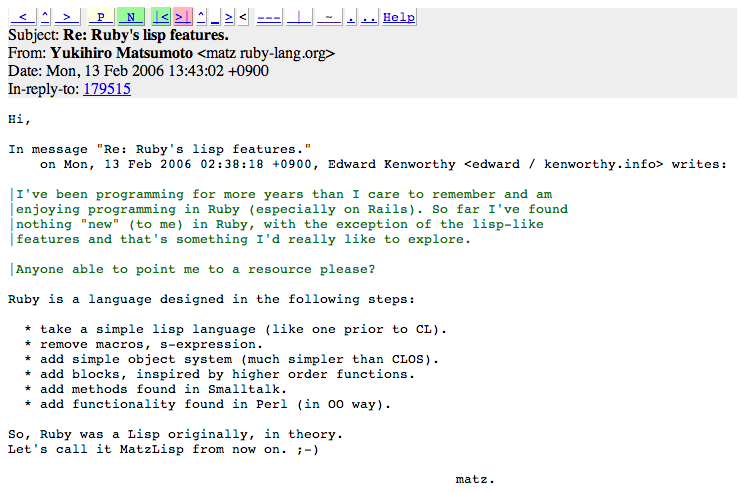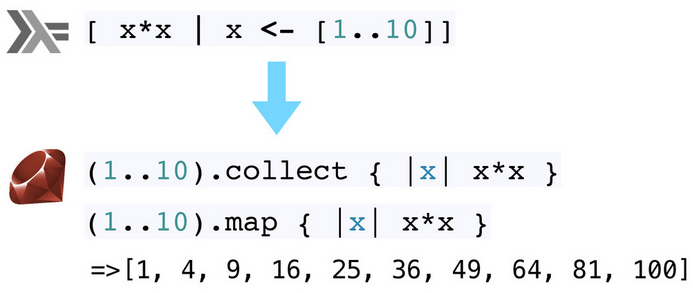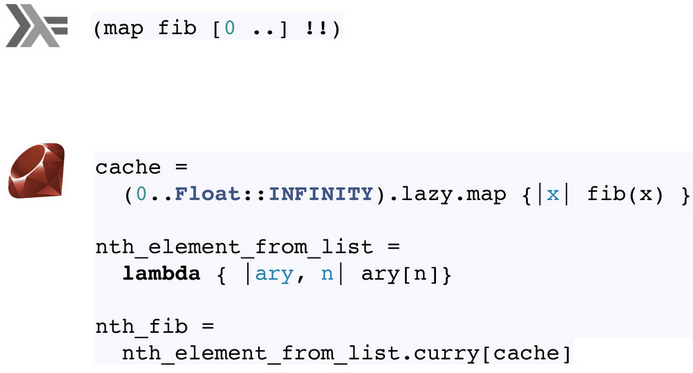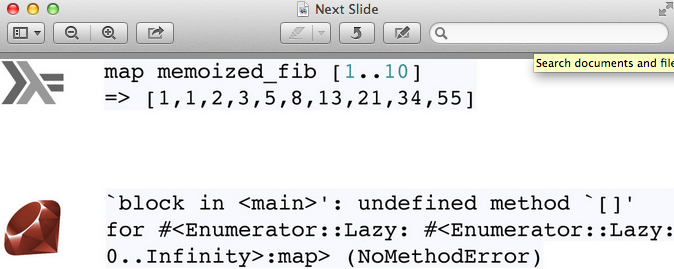<<<<<<< HEAD
> Functional Ruby
=======
Functional Ruby
Update
Functional Programming (“FP”) wasn’t on my radar until I started hacking at The Flatiron School two weeks ago (and by hacking I mean as in a hacking cough :).
Since my ego is super attracted to highbrow challenges and feeling intellectually superior, when I heard that FP was baller status because it’s both exceedingly powerful and exceedingly difficult to master, my interest was piqued. When I saw this speakerdeck presentation from Pat Shaughnessy ((“Get yo ass down to O’Shag Hennessy!” “Who?” “O’Shag Hennessy!!” “Principal O’Shaughnessy???”)) analyzing Ruby’s relationship to FP I was like, “challah!”
And here it is:
<<<<<<< HEAD
Say, what is functional programming anyway?
Higher order functions, bro.
LAZY evaluation (definition: Lazy evaluation delays the evaluation of an expression until its value is needed (non-strict evaluation) and which also avoids repeated evaluations. )
Memoization (definition: Memoization is an optimization technique used primarily to speed up computer programs by having function calls avoid repeating the calculation of results for previously processed inputs.)
An email from Matz! =>
- Check out this screenshot of an old-school email from Matz.
- Why aren’t we calling Ruby “MatzLisp”?!

Ruby, and in particular Ruby 2.0, has a lot of functional features. However…
- Ruby and Haskell can resemble each other, but only on the surface.

- Under the hood, Ruby’s support of functional features is limited.

- Close, but no cigar!

In Conclusion
- Learning a truly functional programming language won’t be trivial.
======= You probably read the deck, but if you didn’t, here are a few takeaways from it.
Amaaazing :-D !
But I’m still confused :–/ ?
One of the coolest factoids is a screenshot of an old-school email from Matz to another developer explaining that Ruby might best be thought of MatzLisp.
Update
